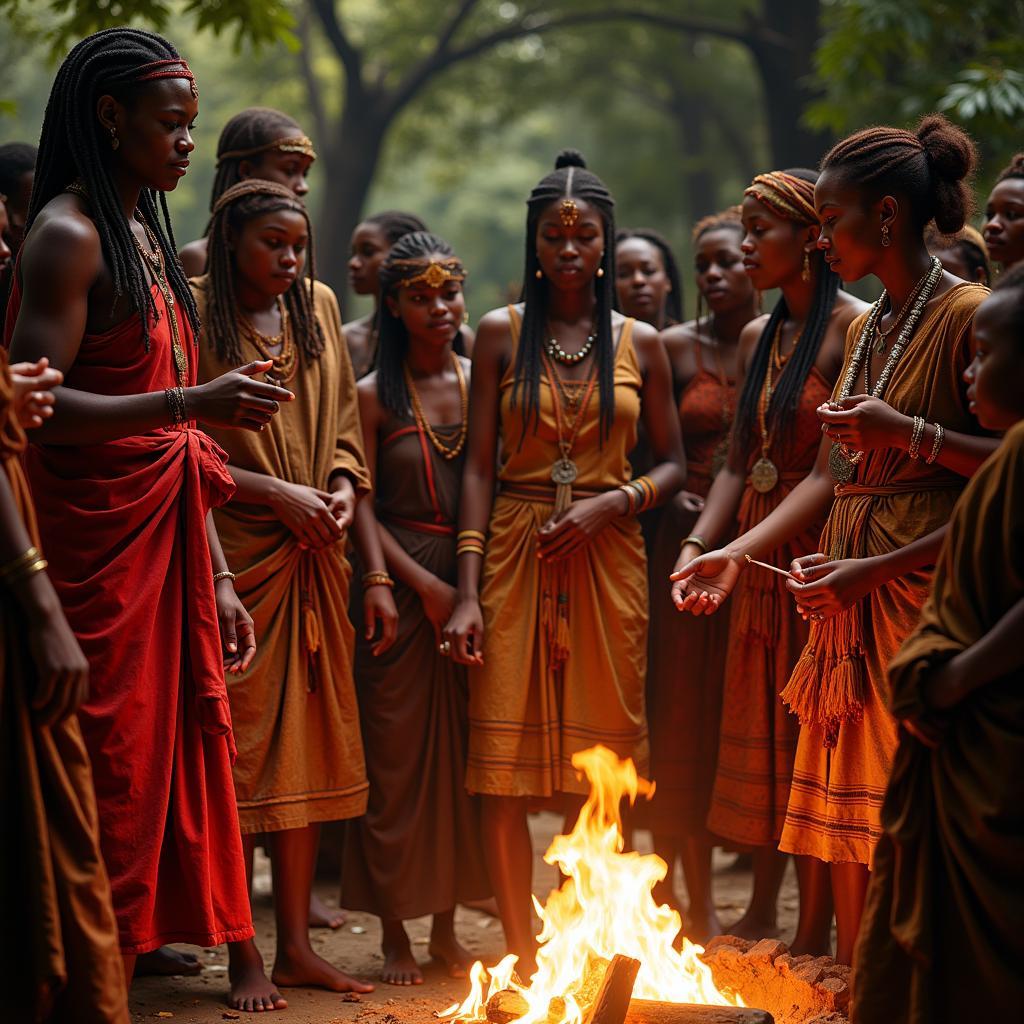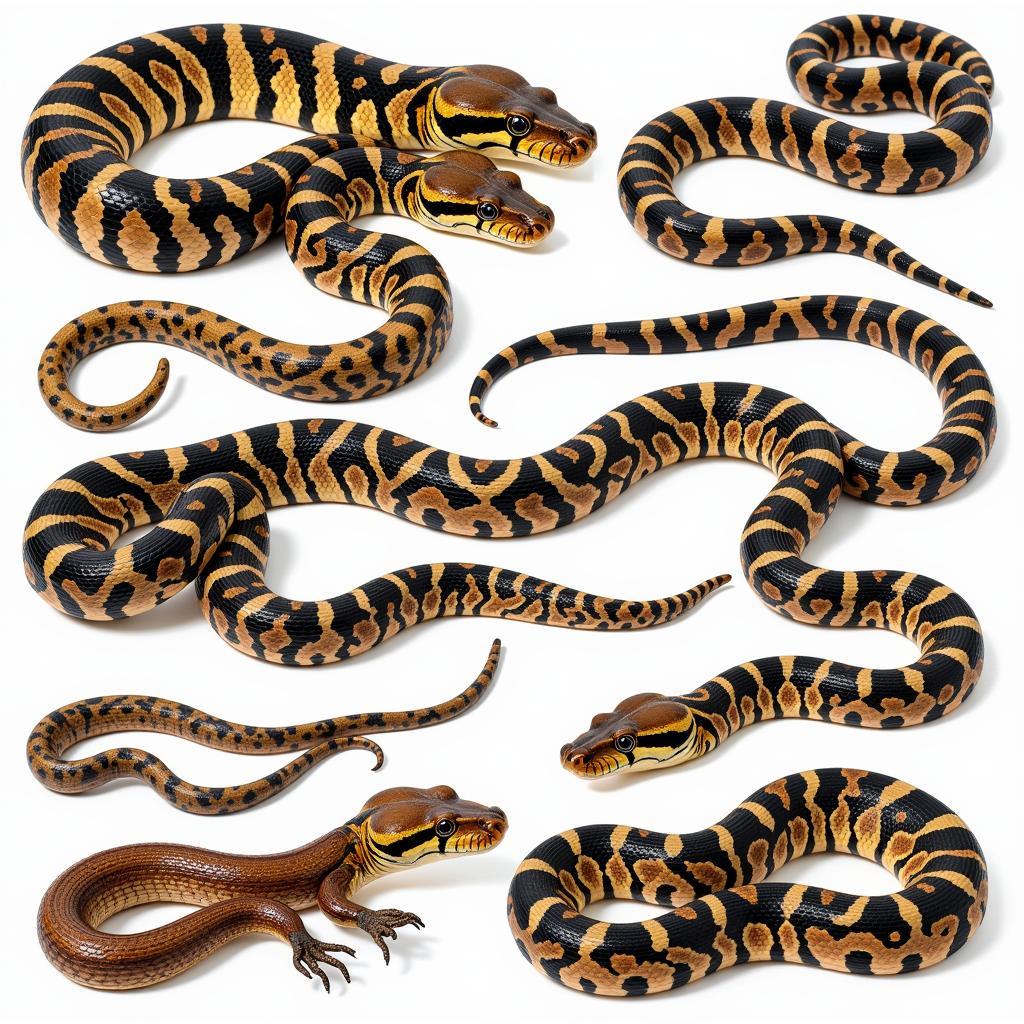Unveiling the Mystery: The African Black Snake
The African Black Snake, a creature often shrouded in myth and misunderstanding, is a fascinating inhabitant of the African continent. While the name might conjure images of a single, specific species, it’s important to note that “African black snake” can refer to several different snake species with predominantly black coloration found across diverse regions of Africa. This article delves into the world of these serpentine creatures, exploring their diversity, habitats, behaviors, and the cultural significance they hold in different African societies.
Diverse Species, Shared Hue
The term “African black snake” encompasses a variety of snakes, each with unique characteristics and adaptations. Some common examples include:
- Black Mamba (Dendroaspis polylepis): Feared for its potent venom and lightning-fast speed, the black mamba is actually brown in color. Its name comes from the inky black inside of its mouth, which it displays when threatened.
- Black Spitting Cobra (Naja nigricollis): Known for its defensive tactic of spitting venom, the black spitting cobra exhibits a range of color variations, including black.
- Southern Black-Headed Snake (Aparallactus capensis): This small, harmless snake is a common sight in gardens, where it helps control pest populations.
Habitats and Adaptations
From the savannas of the east to the rainforests of the west, African black snakes thrive in a variety of ecosystems. Their dark coloration provides effective camouflage in the shadows of forests and grasslands, aiding them in hunting and predator avoidance. Some species, like the black mamba, are highly arboreal, while others, like the black spitting cobra, prefer terrestrial habitats.
Diet and Hunting Strategies
African black snakes are primarily carnivorous, feeding on a diet of rodents, lizards, birds, and other snakes. Their hunting techniques vary depending on the species. Constrictors, such as some black-headed snakes, suffocate their prey by coiling around them, while venomous species, like the black mamba and black spitting cobra, use their venom to subdue their meals.
Cultural Significance
Snakes, including black snakes, hold a complex and multifaceted place in African cultures. In some traditions, they are revered as symbols of power, wisdom, and the cycle of life and death. In others, they are viewed with fear and caution, often associated with misfortune or evil spirits.
For instance, the Ashanti people of Ghana revere a mythical black snake called “Onate,” believed to be the guardian of rivers and a bringer of prosperity. Conversely, some communities view encountering a black snake as a bad omen.
 African Black Snake in Cultural Ceremony
African Black Snake in Cultural Ceremony
Myths and Realities
Despite their ecological importance, African black snakes are often misunderstood, leading to fear and persecution. It’s crucial to remember that most snake species, including black snakes, are not aggressive and will only bite in self-defense. Education and awareness are vital to promoting coexistence and dispelling harmful myths.
Conclusion: Respect and Appreciation for African Black Snakes
The African black snake, in its various forms, is an integral part of the continent’s rich biodiversity. Understanding their behaviors, ecological roles, and cultural significance is essential for fostering respect and appreciation for these often-misunderstood creatures. By promoting knowledge and dispelling myths, we can contribute to their conservation and ensure their continued existence for generations to come.
FAQs about African Black Snakes
- Are all African black snakes venomous? No, not all African black snakes are venomous. While some, like the black mamba and black spitting cobra, possess potent venom, others, like certain black-headed snake species, are harmless to humans.
- What should I do if I encounter an African black snake? It’s best to give them space and avoid disturbing them. Most snakes are not aggressive and will only bite if they feel threatened.
- What is the cultural significance of black snakes in Africa? Snakes, including black snakes, hold diverse cultural meanings in Africa. They are seen as symbols of power, wisdom, and the cycle of life and death in some cultures, while others associate them with misfortune or evil spirits.
For further exploration, discover more about specific African countries:
- African countries passing through the equator
- African countries through which the Tropic of Cancer passes
Need help or have questions? Contact us:
Phone: +255768904061
Email: [email protected]
Address: Mbarali DC Mawindi, Kangaga, Tanzania
We are available 24/7 to assist you!


